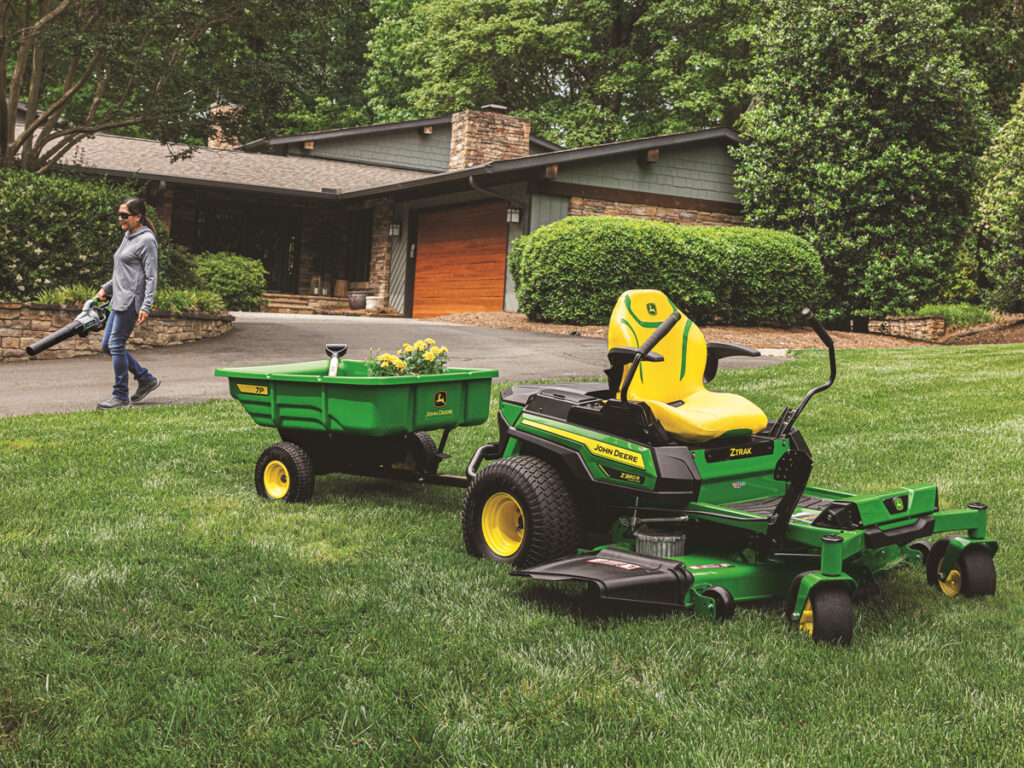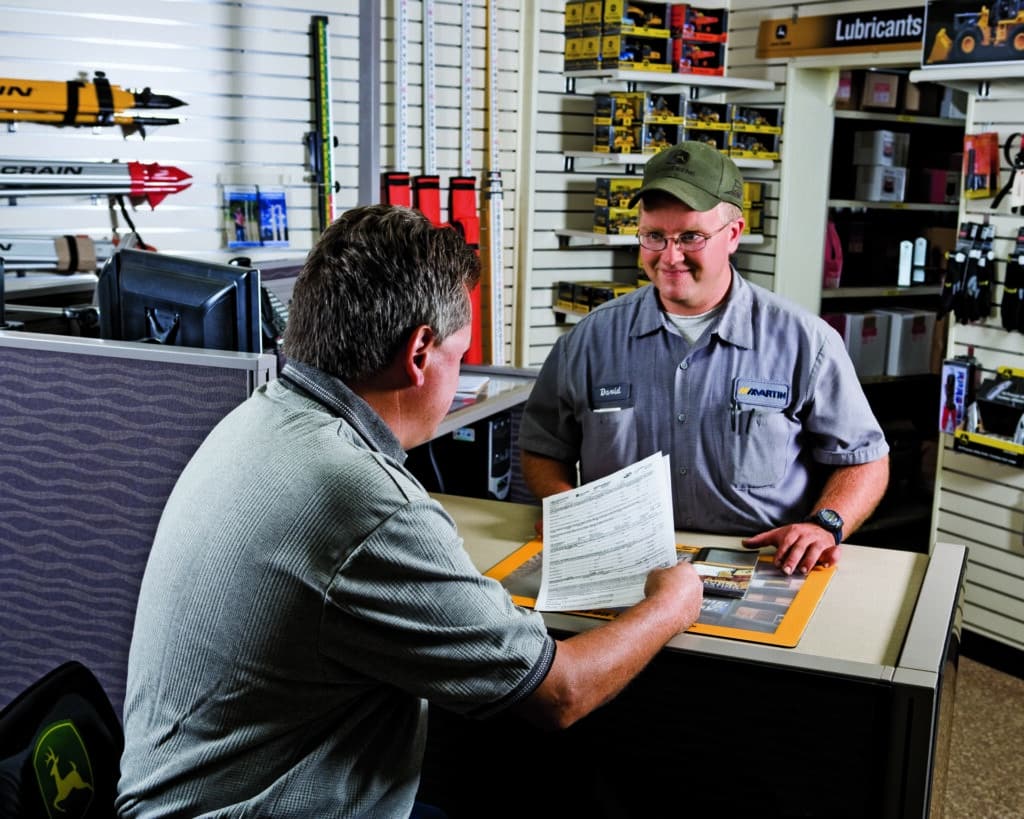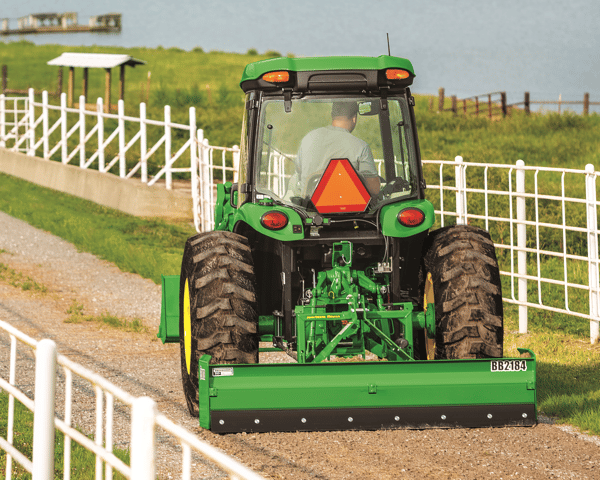
No matter the size of your lawn, garden, farm or recreational property, there’s no shortage of summertime chores and projects. Even so, it’s also worth making time to give your hard-working machinery a little well-deserved TLC.
Your friends at Minnesota Equipment are always glad to help with parts, service and expert advice to keep your machinery running safe and strong. And they recommend tackling these three maintenance and service tasks that are easily overlooked but well worth completing.
Check Your Tires
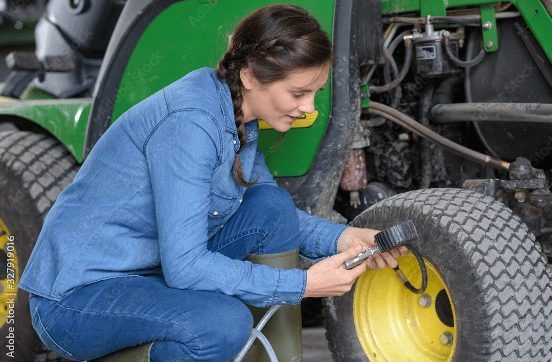
Proper tire inflation is extremely important for vehicles of all shapes and sizes — including tractors and other field equipment. Yet tire pressure rarely gets its due.
A common attitude is, “If the tire isn’t flat, it’s ready to roll.” But considering the critical relationship between tire air pressure, soil compaction and overall tractor performance, tire pressure should be given the same attention as every other facet of machinery maintenance.
Neglecting tire pressure or using the wrong pressure for the axle load can derail years of hard work improving the soil structure of lawns, gardens, farmland and wildlife food plots. Incorrect pressure also poses other risks, including poor equipment performance and the risk of tire failure. For example, bead slip can occur in high-traction conditions if your tires are low on air. Tire air pressure is also a key factor when dialing in the proper amount of wheel slippage for the conditions at hand.
Time spent checking air pressure and properly inflating tires helps protect your soil, while offering the welcome bonus of cutting fuel costs and ensuring you get all the life possible out of your tires. Check your John Deere owner’s manual or contact Minnesota Equipment for details on determining proper tire inflation.
Coolant Considerations
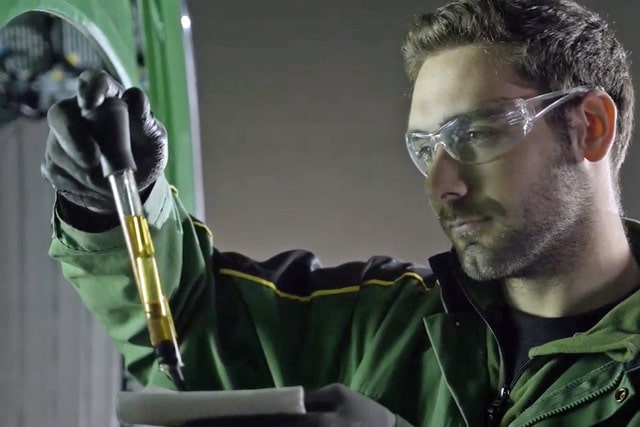
Antifreeze provides freeze protection, but engine coolant additives also guard against corrosion, electrolysis and other threats to performance and longevity.
Coolant additives are consumed at an exponential rate when the engine is under load. The freeze point will not change with coolant use, but its protective ingredients lose their firepower. When your tractor’s engine hums along pulling implements or operating mowers and other attachments, the coolant undergoes phase changes, each time losing a bit of the coolant’s protective powers.
Check the status of coolant inhibitors with easy-to-use test strips such as John Deere’s Cool-Gard II Engine Coolant Test Strips and, as needed, replenish the radiator with fresh coolant or supplemental additives to protect your valuable investment.
TLC For the AC
Tractors topped with air-conditioned cabs benefit from AC service that goes beyond cleaning condenser fins, checking the compressor belt and changing the cabin air filter. It’s also smart to have the refrigerant recharged by a qualified technician, and have them check the system wiring to ensure proper voltage to the compressor clutch.
Without such maintenance, AC system performance suffers, and the potential for costly damage arises. For example, when moisture mixes with refrigerant, it creates acid that attacks internal parts. This can eventually cause a catastrophic failure costing thousands of dollars to repair. To keep your cool and reduce such risks, schedule an inspection of the AC system and have any necessary maintenance or repairs completed ASAP.


 MyME
MyME

